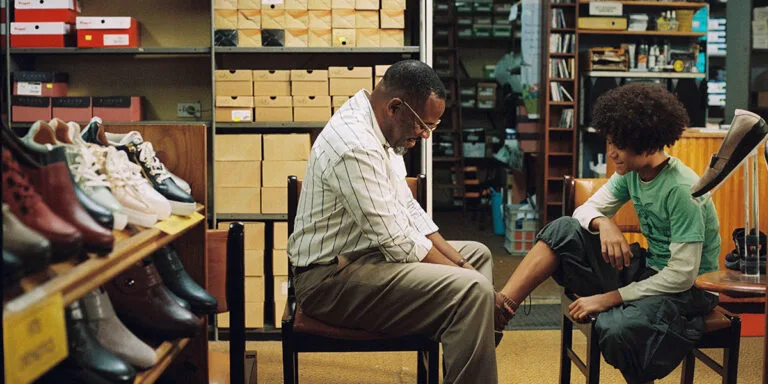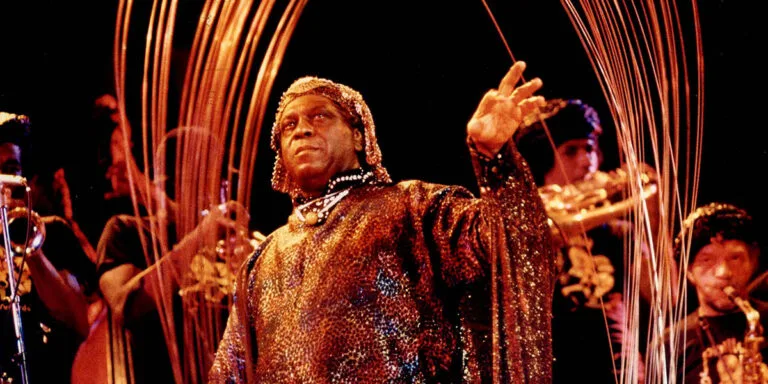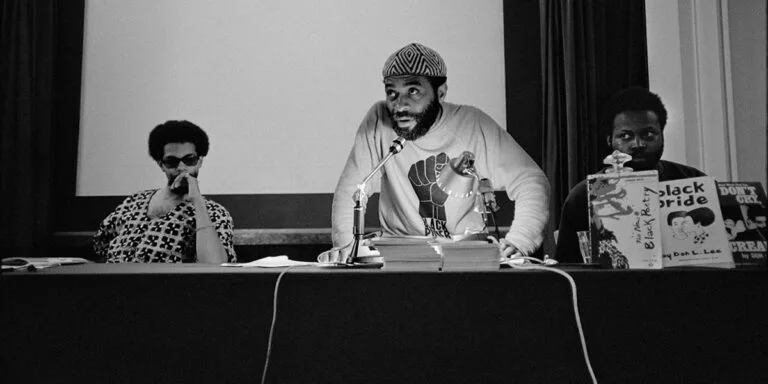In its 29th year of programming, the Chicago International Film Festival’s Black Perspectives category continues to showcase and uplift stories across the diaspora, adding to the archives evidence that Black folk are far from monolithic. Now, more than ever, taking the time to experience stories outside our own will help preserve our ability to be compassionate neighbors. With 10 feature films and a shorts program included in CIFF’s 61st lineup, Black Perspectives, like the other categories, can serve as a strong source for curating one’s own festival experience.
An archival snippet of activist and organizer Rosie Douglas telling us to “learn [your] history” sets the tone for the story that “True North” seeks to describe. The black-and-white documentary by director Michèle Stephenson weaves together soundbites, interviews, and a wealth of historical documentation to recount key events and figures of the Civil Rights Era in Canada, and, more specifically, Montreal. Not only does “True North” bring our attention to the historical and present-day Black-Canadian experience, but the film also directly confronts how anti-Blackness is built and perpetuated by institutions.
Stephenson strings together a narrative that was once stuck out of sight, a persistent yet unsurprising struggle of the Black experience and Black history. Similar to the foundation of the United States, a majority of the Black population in Canada is due to the transatlantic slave trade and immigration. Anchored in one of the more angsty (and, therefore, inactive) age groups, Stephenson narrows in on college students at Sir George University who are standing up for equal classroom treatment and academic opportunity. As hundreds of students of all races and creeds take over the precious college computer lab, the monochromatic scanned photos, peppered with interviews and archival audio, illustrate the unnecessary, one-sided violence that quickly spirals out of control and is later exploited within the legal system.
All these years later, Brenda Dash, one of the women who was a prominent player in such protests, states that, in some ways, her “soul is still colonized.” To no fault of her own, there is so much power in hearing an elder speak truth to the imperfections of combatting and overcoming generational, systemic suffering. In its final moments, “Reach the Sunshine,” a futuristic, psychedelic punk song by rapper Lil Yachty, awakens our souls with sounds that fuel us with optimism for our ability to continue correcting such cruel, longstanding corruptions through collective action.

“Pasa Faho,” a play on the phrase “parts of a whole,” takes the pieces of our broken hearts and puts them together again. In director and writer Kalu Oji’s feature debut, there is undeniable warmth and understanding of whose story he is trying to tell. Oji, who is Igbo Australian, tells the story of Nigerian shoe-store owner Azubuike (Okey Bakassi), who slowly endures unexpected hardships as his tween son Obinna (Tyson Palmer) starts living with him. The family drama is also a story of immigrant communities finding their footing in new places, how spirituality can be reshaped amid such shifts, and how one’s sense of purpose can come into question, yet be reaffirmed through persevering in parenthood.
Despite the limited large-scale and landscape shots, each character has a grand presence, framed in close-ups that shape how audiences connect with this story. With exceptional chemistry between the father-son duo, Bakassi and Palmer bring contemplative complexity to their characters. Even in moments of few words, much is said with their eyes and their physicality.
Over and over, the film conveys some iteration of “true love must move along and evolve,” a lesson Azubuike not only reiterates to his son but also one he, too, is learning and accepting. As the score oscillates between high-vibration afrobeats to more melancholic, classically orchestrated music, each scene is both visually and sonically saturated with emotional cues. “Pasa Faho” is layered and lovely on every level.

At last, the art of Sun Ra, the enigma, the intergalactic sonic savant, is brought to the silver screen. In Christine Turner’s newest documentary, “Sun Ra: Do the Impossible,” we’re flung into his orbit, entranced by his audacious mindset and outlook on life.
The film skims through Sun Ra’s early years and establishes him as a self-proclaimed divine figure from a young age. His beliefs were bigger than the human body could hold; a confidence so courageous and mighty that it was best channeled through making music. Turner transports us to Birmingham, AL, in the 1940s, and then we’re along for a journey to Chicago, New York, Europe, Africa, and beyond.
Despite the film’s diverse and well-stacked lineup of sources and interviewees, there is no explicit, detailed account of Sun Ra’s lasting impact and legacy. Journalists and scholars unanimously agree that Sun Ra and his nature of making were otherworldly. Notably, he’s named “the godfather of Afrofuturism” as the film flashes several artists who embody an offshoot of the aesthetic Sun Ra and his Arkestra brought to the stage. Yet the only musicians included in the documentary are his former bandmates and fellow followers of Afro-mythology. Some even admit to an almost cult-like mentality the musical troupe adopted to remain in line with Sun Ra’s vision and aspirations.
Although this is a seemingly weak point in the overall film, “Sun Ra: Do the Impossible” has a central thesis: placing its subject within the archive as someone larger than life. With deep care and patience, Turner sifts through mountains of archival anecdotes (from letters to albums to found footage) to present just one iota of all Sun Ra was. As the film dances through time, the entirety of the score is composed of sounds created by Sun Ra; before the synth ’70s, we boogie to the big band of the ’40s. The evidence is in the air while the psychedelic editing enhances our ability to have faith and make believe.












